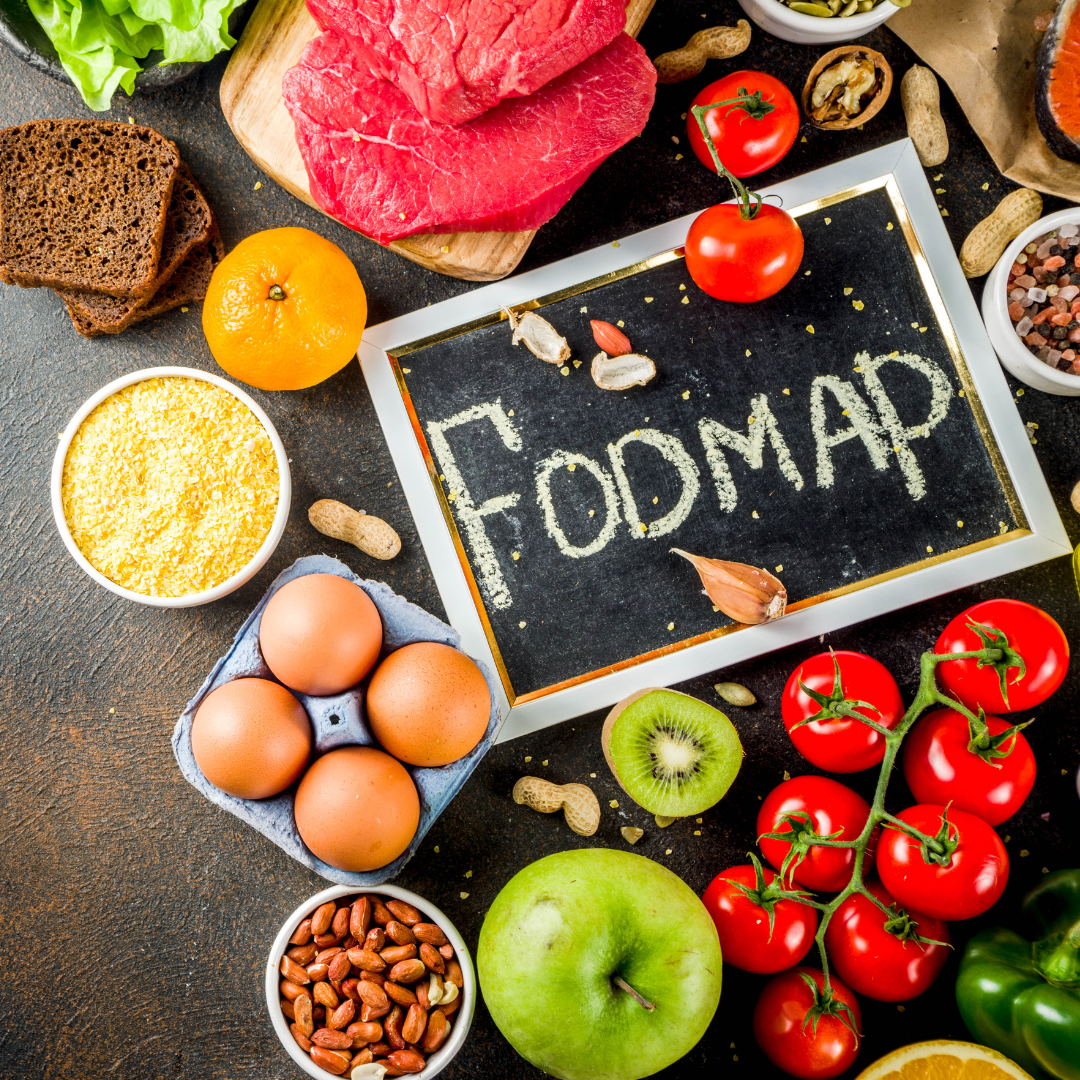What is the FODMAP Diet?
According to Monash University (2024), FODMAP stands for Fermentable Oligo-saccharides, Di-saccharides, Mono-saccharides, and Polyols (2). These are types of carbohydrates that are poorly absorbed by the small intestine. When these carbohydrates reach the large intestine, they are fermented by gut bacteria, producing gas and other by-products. For individuals with sensitive digestive systems, this process can lead to uncomfortable symptoms such as bloating, abdominal pain, and changes in bowel habits (2).
The FODMAP diet, developed by researchers at Monash University in Australia, aims to reduce the intake of these problematic carbohydrates. By doing so, it seeks to alleviate digestive symptoms and improve overall gut health (2).
The Purpose of the FODMAP Diet
The primary goal of the FODMAP diet is to identify which specific FODMAPs trigger an individual's digestive symptoms (2 & 3). It's not meant to be a long-term restrictive diet, but rather a diagnostic tool to help people understand their body's reactions to certain foods.
The diet typically involves three phases (3):
- Elimination: This phase involves strictly avoiding all high-FODMAP foods for 2-6 weeks.
- Reintroduction: Gradually reintroducing FODMAP groups one at a time to identify which ones cause symptoms.
- Personalisation: Creating a long-term, sustainable diet that avoids problematic FODMAPs while maintaining as much variety as possible.
Scientific Backing
The FODMAP diet has strong scientific support. Research has shown that it can significantly reduce IBS symptoms in many people. A study conducted by Nanayakkara et al. (2016) found that 86% of IBS sufferers who followed the FODMAP diet reported a notable reduction in abdominal pain and bloating (4).
Challenges and Solutions
While the FODMAP diet can be highly effective, it's not without its challenges. The elimination phase can be particularly restrictive, potentially leading to nutritional deficiencies if not properly managed. This is why it's crucial to work with a registered dietitian when following this diet.
Moreover, the stress of following a restrictive diet can sometimes exacerbate IBS symptoms, which is counterproductive. For those who find the diet too challenging or prefer more dietary freedom, alternatives like JUVIA offer a potential solution.
JUVIA: A Low FODMAP Certified Alternative
It's worth highlighting that JUVIA has received low FODMAP certification from Monash University. This certification is significant, as Monash University is the birthplace of FODMAP research (2) and their certification is widely respected in the field of digestive health.
JUVIA works by breaking down problematic carbohydrates before they reach the gut, potentially allowing individuals to enjoy a wider range of foods without experiencing digestive discomfort. This approach offers an alternative for those who find the FODMAP diet too restrictive or challenging to follow.
The low FODMAP certification means that JUVIA has been scientifically tested and verified to be low in FODMAPs, making it a suitable option for those following a low FODMAP diet or managing IBS symptoms.
Implementing the FODMAP Diet
If you're considering trying the FODMAP diet, here are some key points to remember:
- Consult a Professional: Always work with a registered dietitian who can guide you through the process and ensure you're meeting your nutritional needs.
- Use Reliable Resources: The Monash University FODMAP diet app is an excellent tool for identifying high and low FODMAP foods.
- Keep a Food Journal: Tracking your food intake and symptoms can help identify specific triggers.
- Be Patient: The process takes time, but understanding your body's reactions can lead to long-term improvements in digestive health.
- Consider Alternatives: If you find the diet too restrictive, consider options like JUVIA that may allow for more dietary flexibility while still managing symptoms.
Foods to Avoid and Alternatives
High FODMAP foods to avoid as well as low FODMAP alternatives can be found here. JUVIA's website regularly shares gut-friendly recipes that are both nutritious and delicious, following the principles of the FODMAP diet.
It's important to note that FODMAP content can sometimes be affected by food preparation. For example, soaking and removing the outer shells of chickpeas can lower their FODMAP content.
Conclusion
The FODMAP diet is a powerful tool for managing IBS and other digestive issues. While it can be challenging to follow, the potential benefits in terms of symptom relief and improved quality of life make it worth considering for many people with persistent digestive problems.
However, it's crucial to approach the diet with proper guidance and to remember that it's not the only solution. Alternatives like JUVIA, with its low FODMAP certification from Monash University, offer another avenue for managing digestive health without the need for strict dietary restrictions.
Whether you choose to follow the FODMAP diet, use a supplement like JUVIA, or combine approaches, the key is to listen to your body and work with healthcare professionals to find the best solution for your individual needs. With patience and persistence, it's possible to achieve significant improvements in digestive health and overall wellbeing.
References:
- Jayasinghe, M., Karunanayake, V., Mohtashim, A., Caldera, D., Mendis, P., Prathiraja, O., Rashidi, F., & Damianos, J. A. (2024). The Role of Diet in the Management of Irritable Bowel Syndrome: A Comprehensive Review. Cureus, 16(2), e54244. https://doi.org/10.7759/cureus.54244
- Monash University. (2024). FODMAPs and Irritable Bowel Syndrome. https://www.monashfodmap.com/about-fodmap-and-ibs/
- Cleveland Clinic. (2024). Low FODMAP Diet. https://my.clevelandclinic.org/health/treatments/22466-low-fodmap-diet
- Nanayakkara, W. S., Skidmore, P. M., O'Brien, L., Wilkinson, T. J., & Gearry, R. B. (2016). Efficacy of the low FODMAP diet for treating irritable bowel syndrome: the evidence to date. Clinical and experimental gastroenterology, 9, 131–142. https://doi.org/10.2147/CEG.S86798
- IBS Diets. (2024, May 27). FODMAP Food List. https://www.ibsdiets.org/fodmap-diet/fodmap-food-list/



